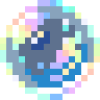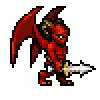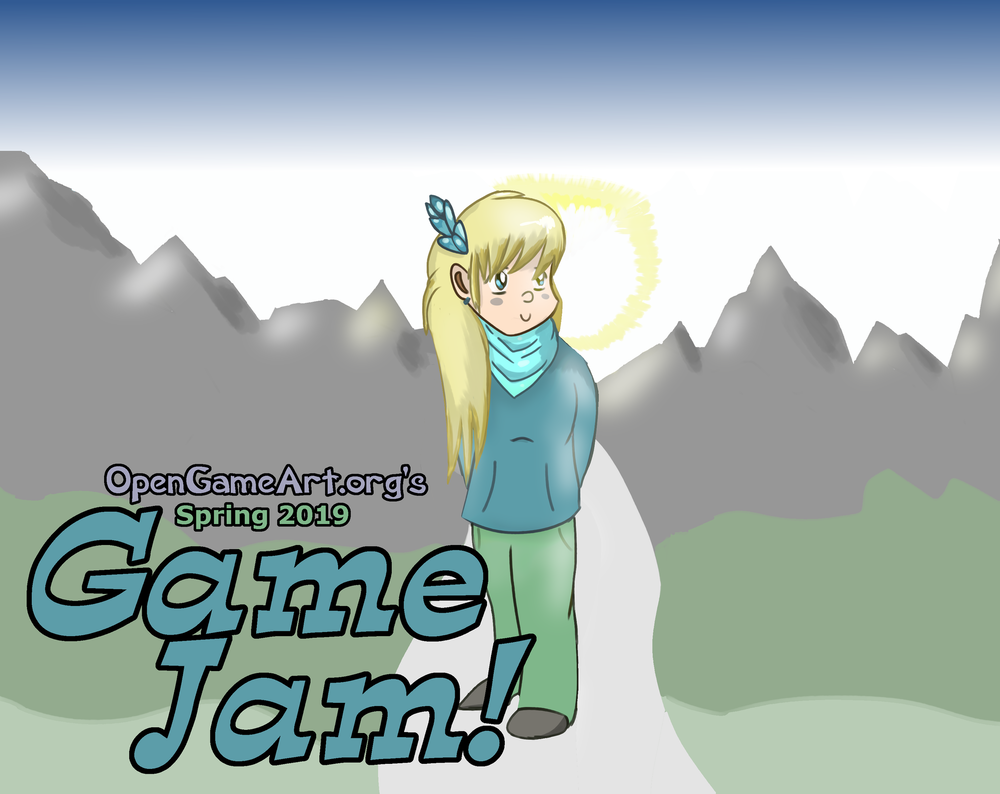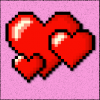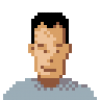Chat with us!
Active Forum Topics - (view more)
- Is team up an option? by Tsorthan Grove
- Rit Creative commons by glitchart
- Arkanoid/Breakout game art suggestions and help by mroshaw
- Sharing My Music and Sound FX - Over 2000 Tracks by Eric Matyas
- Building a Library of Images for Everyone by Eric Matyas
- The advent of AI music by glitchart
- Change Username Requests by EvidentlyCube
- JaidynReiman's LPC Assets - Help/Suggestions by JaidynReiman
Recent Comments - (view more)
- Re: lights, iron fields, low breeze loop & cosmic creature remixed (Tsorthan Grove vs Vitalezzz) by glitchart
- Re: lights, iron fields, low breeze loop & cosmic creature remixed (Tsorthan Grove vs Vitalezzz) by Tsorthan Grove
- Re: Lights by glitchart
- Re: Echoes of Yesterday by glitchart
- Re: Monsters In My Closet by glitchart
- Re: 50+ Monsters Pack 3D by glitchart
- Re: The ruins. by MedicineStorm
- Re: The ruins. by MedicineStorm
Legal notice regarding NFTs:
WARNING: Taking art from OpenGameArt.org to be sold as NFTs? You may be committing FRAUD. Visit this link for legal details: https://opengameart.org/content/warning-taking-art-from-opengameartorg-t...
Note of caution to NFT purchasers or those interested in trading NFTs: You could be getting scammed! Please visit this link for more information: https://opengameart.org/content/note-of-caution-to-nft-purchasers-or-tho...
Popular This Week - (view more)
Latest Art - (view more)
Latest Art by my Friends - (view more)
Featured Art - (view more)
One of the most important (if least mentioned) aspects of game design is how smoothly the game operates. Your game can have snazzy features and a great concept, but for it to be really fun to play, it can't handle like a constipated tank. Unfortunately, avoiding this issue isn't exactly easy. Smoothness of a user interface is something that's difficult to quantify, but I'm going to give it my best shot.
First off, let's take a quick look at a game that gets it right. A couple weeks ago I raved briefly about the delightfully smooth experience that is Frogatto. What is it, exactly, that makes Frogatto so smooth? There are a couple of things. First, the engine runs well on typical modern hardware, so it has an excellent framerate. Nothing feels smooth when you're chugging along at five frames per second, and Frogatto avoids this issue entirely. More than that, though, it's Frogatto's design that makes it smooth. For instance, if you've downloaded the game already, try walking around, and watch what happens when Frogatto changes directions. Seriously, go try it right now. I promise this blog entry will be here when you get back.
Now, did you notice the amount of time it takes for Frogatto to turn around? It's not abslutely instantaneous, but at the same time, it's very responsive. If it took him too long to turn around, the game would be annoying to play -- that much is obvious. But here's the kicker. If he turned around instantaneously, the game would feel klunky. That small amount of time it takes for him to decelerate and begin moving the other direction adds a level of immersion to the game that wouldn't otherwise be there, because Frogatto acts physically the way you might expect him to in the real world -- a way your brain is already hard-wired to understand. As a consequence, Frogatto's controls feel very "real" and natural.
Some of you may be thinking, well, my game is a turn-based strategy game, so none of this applies to me. If that is, in fact, what you are thinking, then you are incorrect. That touch of physical realism that makes Frogatto fun to play can also be applied to your user interface. Consider the lowly drop-down menu, for instance. The easiest way to implement a drop-down menu is just to have it appear instantly when the user clicks on a certain item. Unfortunately, this is also the least pleasing to the eye. If you want the menu to feel natural, you need some sort of transition, perhaps sliding it out. But that's not quite enough! Not only does the menu have to slide out, it has to slide out in a believable way. This means that it can't just slide out at a constant velocity, but rather, it should start slowly, get faster, then slow down again, and finally stop, and it should do all of this quickly enough that the user doesn't feel like they're waiting for it.
Now, perhaps this is all just glitz and flash -- and you can certainly make a pretty amazing game while ignoring these things altogether -- just look at Dwarf Fortress, for instance. People don't spend countless hours playing it for the smooth and intuitive gameplay. Nevertheless, if you want your game to have that finished feel, take some time to work on making the controls and UI as smooth as you possibly can. Keep your transitions fast but not instantaneous, and you'll do well.
Bart
P.S. We're still looking for 4 more new subscribers this month. If you can spare 3 bucks a month and want to help us buy new art for the community, hit the "Donate or Subscrube" button on the right. :)
- bart's blog
- Log in or register to post comments
Greets!
This coming month, we're going to try something different in terms of raising commission money. Instead of going for a fixed amount, I'd like to aim for five new subscribers. So if you're reading this and you can afford a couple dollars a month, hit the "Donate or Subscribe" button on the right side of the page and help us reach our goal!
This is spelled out on the site, but it bears repeating here: Subscribing to OGA doesn't get you any exclusive benefits. What it does do is buy more commissioned art of the community, including yourself. The more donations we can pull in on a monthly basis, the faster our collection will grow, and the more ambitious projects we'll be able to commission. And really, how often can you spend a little money and buy something for everyone? :)
Peace!
Bart
EDIT: We're now participating in the Flattr beta. If you're in the beta and you want to Flattr us, there's a button on the right. :)
- bart's blog
- Log in or register to post comments
I know there are a lot of FOSS game projects out there that keep an eye on OGA, which makes us very happy. If you're reading this and you're a maintainer of a FOSS game project, there's a very easy way you can get more out of OGA. Namely, make a list of the art assets you need. It doesn't need to be a complete list, even -- just a few things you can think of off the top of your head. When you have your list, put it up on your forum or wiki and put a link to it on our forum, or just type up a forum post here on OGA with the list and keep an eye on it. Be sure to specify which license(s) you prefer.
You'd be surprised how often our contributors are sitting around idling in IRC, looking for ideas for things they could work on. Make that work to your advantage and get some game assets out of it. :)
Peace,
Bart
- bart's blog
- Log in or register to post comments
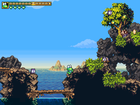 If you haven't checked it out already, I highly recommend taking a look at Frogatto, a free 2D platformer for Windows, Linux, and Macintosh. I've been playing it myself, and while I'm not far enough in to write a real review, what I can say is that the controls are smooth and natural and the graphics are all-around gorgeous. Plus, the game itself is just plain fun.
If you haven't checked it out already, I highly recommend taking a look at Frogatto, a free 2D platformer for Windows, Linux, and Macintosh. I've been playing it myself, and while I'm not far enough in to write a real review, what I can say is that the controls are smooth and natural and the graphics are all-around gorgeous. Plus, the game itself is just plain fun.
Of particular interest is the fact that Frogatto's engine is Open Source and completely moddable. While they've maintained the copyright on their images (they plan to sell their game on the iPhone), the engine itself is GPLed and quite feature-rich. It's also noteworthy that they contributed their previous art to OGA a while back, which you can find here.
Congrats to the Frogatto team on their 1.0 release!
EDIT: Ogrebane notes in a comment:
"It's worth mentioning that the designer and lead programmer of the FOSS TBS Battle for Wesnoth, David White, is the creator of Frogatto. Other Wesnoth contributors who are actively involved in the Frogatto project are Jetrel, crimson_penguin, Neorice, and shadowmaster."
- bart's blog
- Log in or register to post comments
 From time to time, I like to watch OGA's referer list just to get a good idea of where people are finding our site from, and once in a while, I'll discover something super cool. This is one of those times. :)
From time to time, I like to watch OGA's referer list just to get a good idea of where people are finding our site from, and once in a while, I'll discover something super cool. This is one of those times. :)
Meet Galactic Plunder, a game by DougX, written entirely in HTML5 and javascript, which makes use of the Canvas element and native audio. No Flash or Java plugins are necessary to play this game, although you will need an HTML5 compliant browser (the site recommends Firefox or Opera -- no word on Chrome or Safari). The game itself makes use of some works by Lamoot and Surt archived right here on OGA. :)
There's only one level of play right now, but it looks great and the gameplay is smooth! Great work, DougX!
Peace,
Bart
- bart's blog
- Log in or register to post comments







